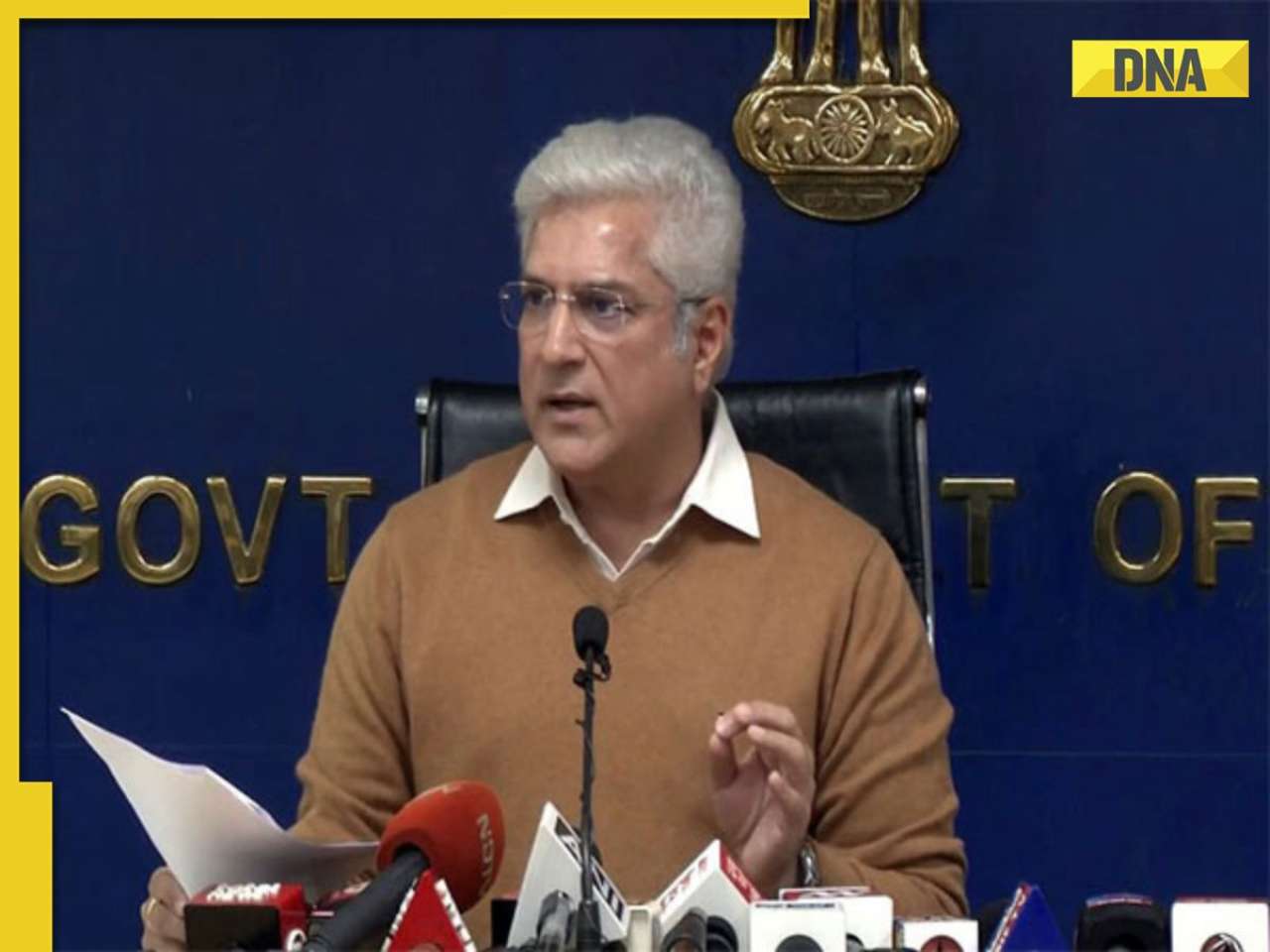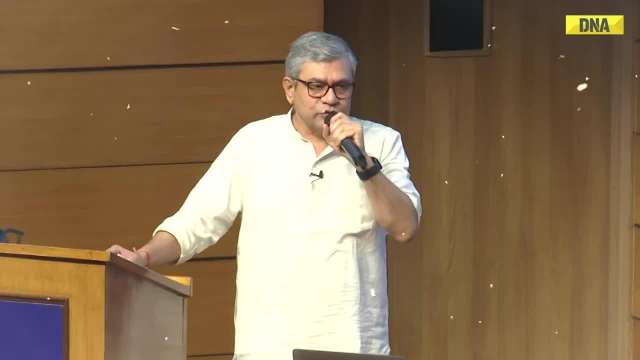Revolutions raise dirt, they seldom settle it. Nor is there a fixed pattern to revolutions; people simply want a change from a dictatorial present to a free future.
Revolutions raise dirt, they seldom settle it. Nor is there a fixed pattern to revolutions; people simply want a change from a dictatorial present to a free future.
But in the intervening confusion, opportunists take over, pushing aside the charged up protagonists who had ushered in the change.
Revolutions also raise excessive expectations. In the heady days before the overthrow of a dictator, crowds delude themselves into believing that they are heralding a new dawn; that their revolution is qualitatively different from all the previous revolutions of the world. But disappointment takes over inevitably.
The realisation that the governing classes are alike in all ages and under most circumstances comes as a slow dénouement. Corruption and governance deficit carry on as before, but in a new garb.
In the Bolshevik revolution, Soviet people were promised a new way of life; the like of which the world had never seen before. The communists were undoubtedly a novelty, but for seven decades people stifled in misery. Iranians had their own brand of revolution; but do people live a life of joy?
Still, the Egyptian revolution is different. For one, this is not their first time. Its people rose in Cairo against Napoleon’s army in 1798. They fought the monarchy in 1881 and 1882, staged an insurrection against the British in 1919 and 1952, rebelled against Sadat in 1977 and against Mubarak in 1986, when even the police deserted the government.
Therefore it is not surprising that the Egyptian revolution should have been successful. But this was merely a first round which left everyone from protesters to the Muslim brotherhood and the army satisfied. A new set of protests are bound to follow when the Army contrives not to loosen its grip. So the generals now fighting like vultures over the wreckage of Mubarak’s regime must take care.
In the list of issues that made people erupt, unemployment, low wages, widespread poverty and corruption were definitely central. But a deeper malaise concerned the lack of a direction; of the absence of a higher purpose that could be the national loadstar for the people.
For the last two centuries, to take a recent time span in a very old country, every period offered something special. Muhammed Ali, the founder of modern Egypt, wanted to build the Army and revive the country, Khedive Ismail attempted to model Egypt after Europe. Later in the 30s and 40s, the Wafd Party aimed for a constitutional democracy, and Nasser had aspired for Arab nationalism. All these were lofty projects which inspired people. The last 30 years were dull in comparison. There was an inspirational void; heightened by political failure.
The question therefore is whether Egypt’s new rulers would aim for political Islam or Arab liberalism? Both possibilities exist in the current distinctly fluid situation. In either case the reverberations would be felt in the wider Arab world.
But the big question is whether the Egyptian army shares the aspirations of its people? Perhaps not. Observers fear it may find powerful, behind the scenes support from USA for its desire to continue controlling the levers of power directly or indirectly.
For instance, the then secretary of state Condoleezza Rice said in Cairo in 2005: “For 60 years, my country … pursued stability at the expense of democracy in this region … and we achieved neither.”
The events in Egypt may not affect us in India, but there are some parallels. Both ancient civilisations suffer from widespread poverty, high inflation and endemic corruption. In both a large percentage of the population is below 30. Fortunately, and unlike Egypt, we do not have a dictator or a control freak army.
But it is in the Middle East that repressive regimes have been put on notice. The combination of internet, global media, restless youth and economic liberal order has a homogenising effect. What happens in one part of the Arab world could inspire people in other parts.
After Tunisia and Egypt, it may very well be Morocco or Algeria that changes constitutional direction. Bah-rain and Yemen are in ferment already, elsewhere in the Gulf the local populations may have been in a political slumber due to generous state largesse and the fear of its authority. But people may yet rouse themselves to action and surprise the world. After all the ides of March are merely a few weeks away.
The author is a former ambassador, writer and columnist
![submenu-img]() Verantes Living Awarded as India’s No.1 Stainless Steel Modular Kitchen Brand
Verantes Living Awarded as India’s No.1 Stainless Steel Modular Kitchen Brand![submenu-img]() Narayana Murthy’s Infosys set to invest Rs 170000000 in this startup
Narayana Murthy’s Infosys set to invest Rs 170000000 in this startup![submenu-img]() 'Towards reducing pollution..': Delhi govt approves replacement, induction of electric vehicles in 'Gramin Sewa'
'Towards reducing pollution..': Delhi govt approves replacement, induction of electric vehicles in 'Gramin Sewa'![submenu-img]() Discover Stainless France, the Leading Supplier of Cobalt Chrome
Discover Stainless France, the Leading Supplier of Cobalt Chrome![submenu-img]() Kritika Kamra says men should take responsibility for fighting sexism: 'There's a thin line between...'
Kritika Kamra says men should take responsibility for fighting sexism: 'There's a thin line between...'![submenu-img]() Study में दावा, 2050 तक करोड़ों लोगों की जान ले सकती है ये खतरनाक बीमारी! दवाएं हो सकती हैं बेअसर
Study में दावा, 2050 तक करोड़ों लोगों की जान ले सकती है ये खतरनाक बीमारी! दवाएं हो सकती हैं बेअसर![submenu-img]() Russia Ukraine War: यूक्रेन में भारतीय हथियार पहुंचने से नाराज हुए Putin, भारत बोला- झूठी है रिपोर्ट
Russia Ukraine War: यूक्रेन में भारतीय हथियार पहुंचने से नाराज हुए Putin, भारत बोला- झूठी है रिपोर्ट![submenu-img]() तिरुपति मंदिर के प्रसाद में मिलाई जानवर की चर्बी? सीएम चंद्रबाबू नायडू के दावे पर मचा बवाल, जानिए क्या कहती है लैब रिपोर्ट
तिरुपति मंदिर के प्रसाद में मिलाई जानवर की चर्बी? सीएम चंद्रबाबू नायडू के दावे पर मचा बवाल, जानिए क्या कहती है लैब रिपोर्ट![submenu-img]() ठेके पर खुद दारू खरीदने पहुंचे डीएम साहब, फिर हुआ कुछ ऐसा... देखें Viral video
ठेके पर खुद दारू खरीदने पहुंचे डीएम साहब, फिर हुआ कुछ ऐसा... देखें Viral video![submenu-img]() IND vs BAN 1st Test: अश्विन ने बनाया गजब का रिकॉर्ड, जडेजा के साथ खास क्लब में हुए शामिल
IND vs BAN 1st Test: अश्विन ने बनाया गजब का रिकॉर्ड, जडेजा के साथ खास क्लब में हुए शामिल![submenu-img]() Ford to return to India after 2 years with reopening of....
Ford to return to India after 2 years with reopening of....![submenu-img]() Maruti Suzuki launches new Swift CNG, check price, mileage, other features
Maruti Suzuki launches new Swift CNG, check price, mileage, other features![submenu-img]() ‘30 LPA, 3BHK, no in-laws’: Woman earning Rs 1.32 lakh salary lists demands for future husband, netizens say...
‘30 LPA, 3BHK, no in-laws’: Woman earning Rs 1.32 lakh salary lists demands for future husband, netizens say...![submenu-img]() In a big EV push, Centre launches Rs 10900 crore PM E-Drive scheme to replace…
In a big EV push, Centre launches Rs 10900 crore PM E-Drive scheme to replace…![submenu-img]() World’s longest car has helipad, swimming pool, mini-golf course, can seat over…; it cost…
World’s longest car has helipad, swimming pool, mini-golf course, can seat over…; it cost…![submenu-img]() Meet IPS officer who has resigned after serving for 18 yrs due to...
Meet IPS officer who has resigned after serving for 18 yrs due to...![submenu-img]() Meet Indian man, who got hired whopping Rs 12000000 crore salary job, not from IIT, IIM he is...
Meet Indian man, who got hired whopping Rs 12000000 crore salary job, not from IIT, IIM he is...![submenu-img]() Meet woman who left medical career for UPSC exam , became IPS with AIR 165 then left job due to...
Meet woman who left medical career for UPSC exam , became IPS with AIR 165 then left job due to...![submenu-img]() Meet man, who left NDA due to depression, then cracked UPSC exam to become IAS officer, his AIR was...
Meet man, who left NDA due to depression, then cracked UPSC exam to become IAS officer, his AIR was...![submenu-img]() Meet youngest CEO of India, who created first app at 9, began his own company at 13, now he is…
Meet youngest CEO of India, who created first app at 9, began his own company at 13, now he is…![submenu-img]() Congress President Kharge Slams & Opposes 'One Nation, One Election' Proposal, Calls It Impractical
Congress President Kharge Slams & Opposes 'One Nation, One Election' Proposal, Calls It Impractical![submenu-img]() Why 'One Nation One Election' Is important? Ashwini Vaishnaw Explains After It Gets Cabinet Approval
Why 'One Nation One Election' Is important? Ashwini Vaishnaw Explains After It Gets Cabinet Approval![submenu-img]() Jammu Kashmir Assembly Election 2024 Phase 1 Highlights: What Happened In First phase In J&K Polls?
Jammu Kashmir Assembly Election 2024 Phase 1 Highlights: What Happened In First phase In J&K Polls?![submenu-img]() One Nation One Election: Centre Clears Proposal, Bill To Be Introduced In Winter Session | Modi 3.0
One Nation One Election: Centre Clears Proposal, Bill To Be Introduced In Winter Session | Modi 3.0![submenu-img]() Haryana Elections 2024: Is BJP Set To Lose In Haryana? Anti-Incumbency And Other Factors Analysed
Haryana Elections 2024: Is BJP Set To Lose In Haryana? Anti-Incumbency And Other Factors Analysed![submenu-img]() Verantes Living Awarded as India’s No.1 Stainless Steel Modular Kitchen Brand
Verantes Living Awarded as India’s No.1 Stainless Steel Modular Kitchen Brand![submenu-img]() Narayana Murthy’s Infosys set to invest Rs 170000000 in this startup
Narayana Murthy’s Infosys set to invest Rs 170000000 in this startup![submenu-img]() Discover Stainless France, the Leading Supplier of Cobalt Chrome
Discover Stainless France, the Leading Supplier of Cobalt Chrome![submenu-img]() ITR filing: Haven’t received your income tax refund yet? Here’s what you should do
ITR filing: Haven’t received your income tax refund yet? Here’s what you should do![submenu-img]() Meet ‘delivery boy’ who beats Mukesh Ambani in world’s billionaire list, his net worth is…
Meet ‘delivery boy’ who beats Mukesh Ambani in world’s billionaire list, his net worth is…![submenu-img]() In pics: Saiyami Kher conquers Ironman triathlon in Germany, swims, cycles, runs to complete endurance races
In pics: Saiyami Kher conquers Ironman triathlon in Germany, swims, cycles, runs to complete endurance races![submenu-img]() Meet IAS officer, who cracked in UPSC exam along with full-time job, her AIR was...
Meet IAS officer, who cracked in UPSC exam along with full-time job, her AIR was...![submenu-img]() In pics | India vs Bangladesh 1st Test, Day 1
In pics | India vs Bangladesh 1st Test, Day 1![submenu-img]() From Mechuka to Hayuliang village: Explore lesser-known destinations of Arunachal Pradesh
From Mechuka to Hayuliang village: Explore lesser-known destinations of Arunachal Pradesh![submenu-img]() From Simlipal National Park to Mahendragiri: Top 6 hidden gems to discover in Odisha
From Simlipal National Park to Mahendragiri: Top 6 hidden gems to discover in Odisha![submenu-img]() 'Towards reducing pollution..': Delhi govt approves replacement, induction of electric vehicles in 'Gramin Sewa'
'Towards reducing pollution..': Delhi govt approves replacement, induction of electric vehicles in 'Gramin Sewa'![submenu-img]() More trouble for ex-RG Kar principal Sandip Ghosh, Bengal medical body now...
More trouble for ex-RG Kar principal Sandip Ghosh, Bengal medical body now...![submenu-img]() Tirupati Laddu row: Lab report confirms prasada contains beef fat, fish oil
Tirupati Laddu row: Lab report confirms prasada contains beef fat, fish oil![submenu-img]() Delhi: Water supply to be shut down in capital for 12 hours tomorrow due to…; check list of affected areas
Delhi: Water supply to be shut down in capital for 12 hours tomorrow due to…; check list of affected areas![submenu-img]() FATF says India faces severe 'terrorist financing threats' from...
FATF says India faces severe 'terrorist financing threats' from...











































)
)
)
)
)
)
)
)
)
)
)
)
)
)





)
)
)
)
)
)